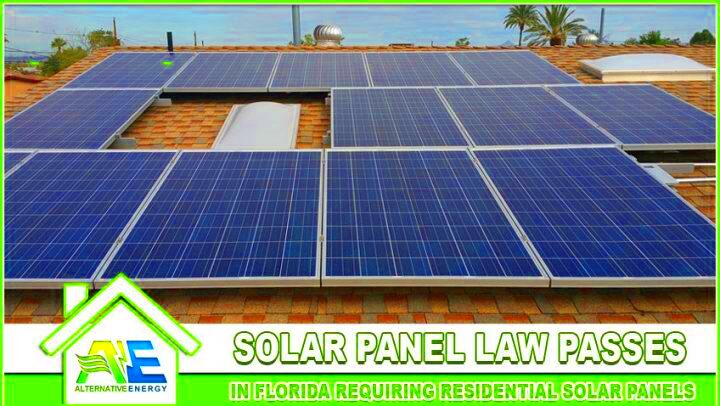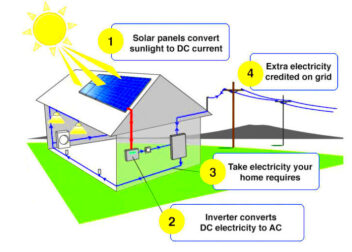Solar Panels in Florida and the Relevant Legal Guidelines
Florida, known as the Sunshine State, is an ideal location for solar energy. With abundant sunlight throughout the year, homeowners and businesses are increasingly turning to solar panels as a way to harness this renewable energy source. Solar panels not only help reduce electricity bills but also contribute to a cleaner environment. In this blog post, we will explore the various aspects of solar panels in Florida, including their benefits, types, legal guidelines, and more.
Understanding Solar Energy and Its Benefits
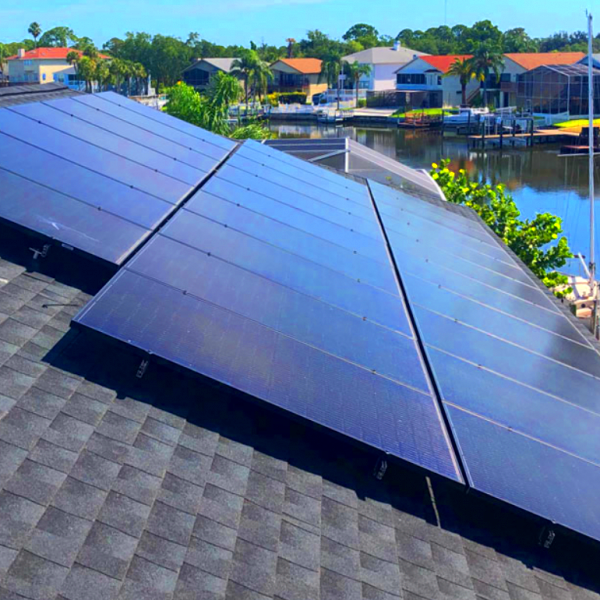
Solar energy is a clean and renewable energy source that harnesses sunlight to generate electricity. Here are some key benefits of solar energy:
- Environmental Impact: Solar energy reduces greenhouse gas emissions, helping combat climate change.
- Energy Independence: By using solar panels, you can rely less on fossil fuels and reduce dependence on external energy sources.
- Cost Savings: Solar panels can significantly lower electricity bills over time, and many states offer incentives for installation.
- Increase Property Value: Homes with solar installations often have higher resale values due to the long-term energy savings.
- Low Maintenance: Solar systems generally require minimal maintenance once installed, making them a hassle-free energy solution.
With these benefits in mind, it’s clear that solar energy is a smart choice for many Floridians looking to invest in their future.
Types of Solar Panels Available in Florida
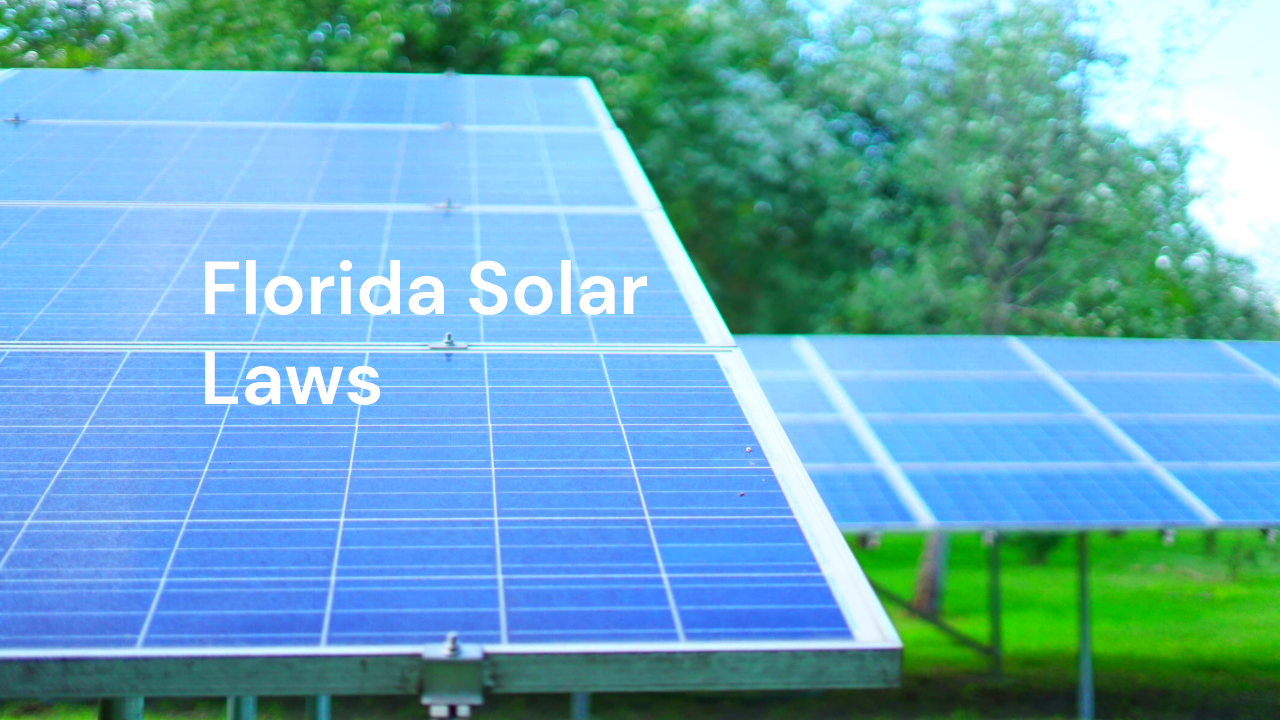
When considering solar panels, it’s important to understand the different types available. Each type has its own advantages and suitability depending on your specific needs. Here are the main types of solar panels you can find in Florida:
| Type of Solar Panel | Description | Advantages |
|---|---|---|
| Monocrystalline Panels | Made from a single crystal structure, these panels are known for their high efficiency and longevity. | Higher efficiency, longer lifespan, and space-efficient. |
| Polycrystalline Panels | Composed of multiple crystal structures, these panels are less efficient but generally more affordable. | Cost-effective and good performance in low-light conditions. |
| Thin-Film Panels | These panels are made from flexible materials and can be applied to various surfaces. | Lightweight, versatile, and effective in high temperatures. |
Choosing the right type of solar panel depends on your budget, space availability, and energy needs. Consulting with a solar energy expert can help you make the best decision for your situation.
Legal Framework Governing Solar Panels in Florida
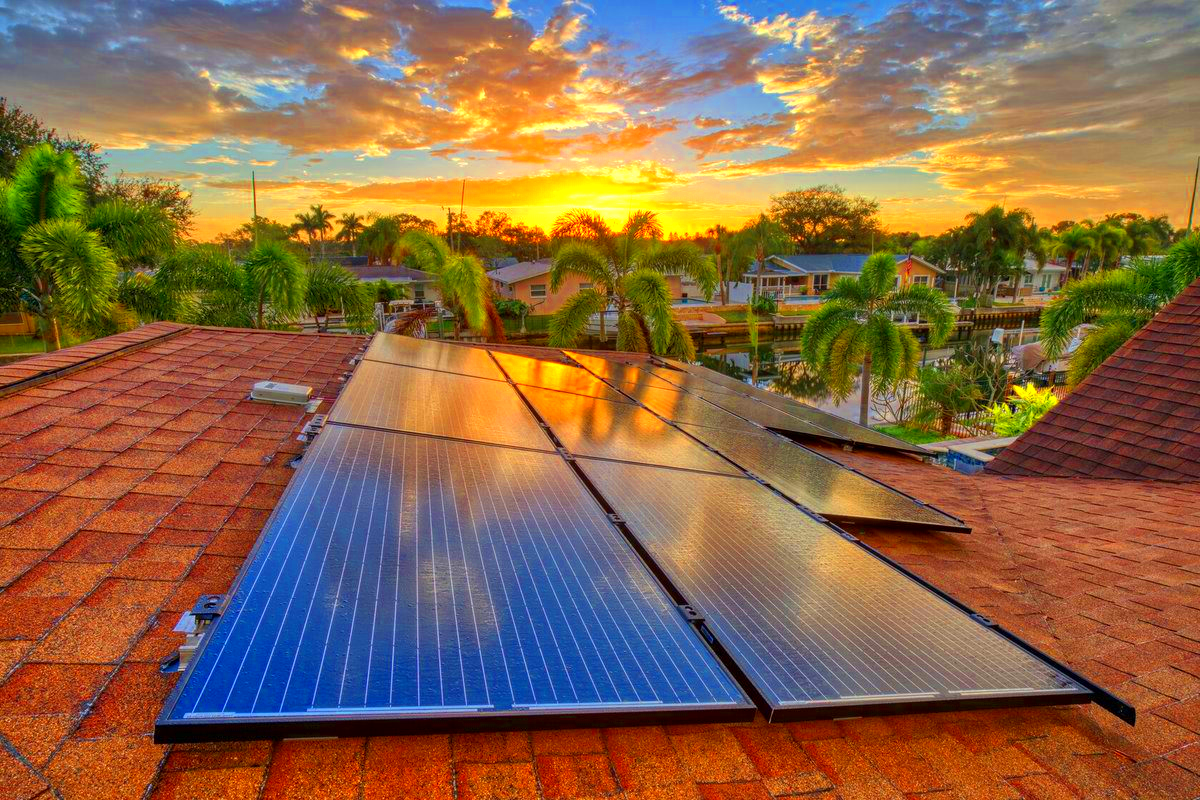
Florida has established a comprehensive legal framework that supports the use of solar energy. This framework not only encourages the adoption of solar panels but also protects consumers’ rights. The key components of this legal framework include state laws, regulations, and policies that govern solar energy systems. Here are some crucial aspects:
- Solar Rights Law: Florida’s Solar Rights Law ensures that homeowners can install solar energy systems without unreasonable restrictions from local governments or homeowner associations.
- Net Metering: This policy allows solar panel owners to receive credit for the excess energy they produce and feed back into the grid, making solar energy more economically viable.
- Incentives and Rebates: Florida offers various incentives, such as tax credits and rebates, to encourage the installation of solar panels, reducing the financial burden on homeowners.
- Building Codes: Solar installations must comply with local building codes to ensure safety and efficiency, which are enforced by local authorities.
Understanding these legal guidelines is essential for anyone considering solar energy in Florida, as they provide a framework that protects your investment and promotes the use of clean energy.
Homeowner Association Rules and Solar Panel Installations
Homeowner associations (HOAs) play a significant role in managing residential communities, and their rules can impact solar panel installations. In Florida, there are specific regulations that protect homeowners’ rights to install solar panels, even in communities governed by HOAs. Here’s what you need to know:
- Restrictions on Restrictions: Florida law prevents HOAs from imposing unreasonable restrictions on solar panel installations. They cannot outright ban solar panels.
- Design Guidelines: While HOAs cannot ban solar panels, they can set reasonable aesthetic guidelines. This might include placement or color of the panels, but it should not hinder functionality.
- Notification Requirements: Many HOAs require homeowners to notify them before installing solar panels. It’s crucial to check your community’s specific rules to ensure compliance.
Understanding your HOA’s rules and Florida’s legal protections can help you navigate any potential conflicts and ensure a smooth installation process.
Permitting and Zoning Requirements for Solar Panels
Installing solar panels in Florida requires compliance with specific permitting and zoning regulations. These regulations ensure that installations are safe, effective, and compliant with local laws. Here’s a breakdown of what you need to consider:
- Building Permits: Before installing solar panels, homeowners must obtain a building permit from their local government. This process typically involves submitting plans for review to ensure compliance with building codes.
- Electrical Permits: Since solar panels are connected to the electrical system, an electrical permit is also necessary. This permit ensures that the electrical work meets safety standards.
- Zoning Regulations: Local zoning laws may affect where you can install solar panels on your property. For instance, some areas may have height restrictions or specific setback requirements.
- Inspection Requirements: After installation, local authorities may require an inspection to ensure everything is up to code and functioning correctly.
By understanding these permitting and zoning requirements, you can ensure that your solar installation complies with local laws, helping you avoid potential issues down the road.
Tax Incentives and Financial Assistance for Solar Panel Installation
Installing solar panels can be a significant investment, but fortunately, Florida offers various tax incentives and financial assistance options to help offset these costs. These incentives make it more affordable for homeowners and businesses to adopt solar energy. Here’s a look at some of the key financial benefits available:
- Federal Investment Tax Credit (ITC): This federal program allows homeowners to deduct a substantial percentage of their solar panel installation costs from their federal taxes. As of 2023, the ITC is set at 30%.
- Florida’s Property Tax Exemption: Solar energy systems are exempt from property taxes in Florida, meaning you can increase your home’s value without increasing your tax bill.
- Sales Tax Exemption: Solar panel installations are exempt from Florida’s sales tax, providing significant savings at the time of purchase.
- Local Incentives: Some counties and cities offer additional rebates or grants to encourage solar adoption. It’s worth checking with your local government for any available programs.
These incentives not only reduce the upfront costs but also make solar energy an economically attractive option. Be sure to consult with a tax professional to understand how these incentives can benefit you specifically.
Common Legal Issues Related to Solar Panel Installations
While installing solar panels is a great decision, homeowners may encounter various legal issues during the process. Understanding these challenges can help you navigate the landscape more effectively. Here are some common legal issues to be aware of:
- Homeowners Association Disputes: As previously mentioned, HOA rules can sometimes lead to conflicts over solar installations. It’s essential to be familiar with your HOA’s guidelines and state laws.
- Permitting Issues: If permits are not properly obtained, you may face fines or be required to remove the solar panels. Ensure you follow local regulations closely.
- Contractor Disputes: Issues may arise with contractors regarding the scope of work, pricing, or timelines. Always use reputable contractors and have a detailed contract.
- Liens on Property: If financing options involve a lien on your property, it’s crucial to understand the terms and implications of such agreements.
Being aware of these potential issues and addressing them upfront can save you time and money in the long run.
Frequently Asked Questions
When considering solar panels, many homeowners have questions about the process, costs, and benefits. Here are some frequently asked questions that can provide clarity:
- How much do solar panels cost? The cost of solar panels varies based on system size, type, and installation specifics, but many homeowners see a return on investment within a few years.
- What are the maintenance costs for solar panels? Solar panels generally require little maintenance. Regular cleaning and inspections are recommended, but these costs are typically minimal.
- Will solar panels work during a power outage? Standard solar panel systems shut down during outages for safety reasons, but installing battery storage can provide power during outages.
- How long do solar panels last? Most solar panels come with a warranty of 25 years, but they can continue to produce energy beyond that timeframe with proper care.
- Can I install solar panels myself? While some may attempt DIY installations, it’s generally recommended to hire professionals to ensure compliance with local codes and safety standards.
If you have more questions or need further information, consulting with a solar energy expert can provide personalized guidance tailored to your situation.
Conclusion
In conclusion, solar panels present a fantastic opportunity for homeowners in Florida to harness renewable energy while enjoying significant financial benefits. Understanding the legal framework, including state laws, homeowner association rules, and permitting requirements, is crucial for a smooth installation process. Additionally, tax incentives and financial assistance programs can significantly lower the overall costs, making solar energy accessible to more residents. As you navigate the solar landscape, being aware of common legal issues and seeking guidance from professionals can help you make informed decisions. Embracing solar energy not only contributes to a sustainable future but also provides long-term savings for your household.
